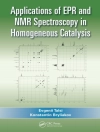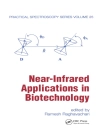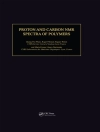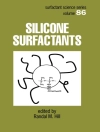Natural Materials for Food Packaging Application
Analyze the future of biodegradable food packaging with this cutting-edge overview
Packaging plays an essential role in the production of food and its movement through the global supply chain. Food packaging has been a significant site of innovation recently, allowing consumers better access to natural and organic foods, extended shelf lives, and more. However, food packaging has become an increasingly serious environmental hazard, with the result that biodegradable food packaging has become a vital and growing area of research.
Natural Materials for Food Packaging Application provides a thorough and detailed introduction to natural packaging and its applications in food transportation. Treating both recent innovations and prospective future developments, it provides readers with extensive insights into the current state of research in this field. The result is a volume designed to meet the aspirational needs of a sustainable food industry.
Natural Materials for Food Packaging Application readers will also find:
- Detailed treatment of biodegradable packaging materials including thermo-plastic starch, polybutylene succinate, and more
- Discussion of subjects including chitosan-based food packaging films, clay-based packaging films, and more
- An authorial team with vast expertise in the field of biological polymer production
Natural Materials for Food Packaging Applications is a useful reference for chemists, materials scientists, and food scientists, as well as for any industry professionals working in food distribution and the food supply chain.
विषयसूची
Preface xiii
About the Editors xv
1 Introduction to Natural Materials for Food Packaging 1
Manickam Ramesh, Lakshminarasimhan Rajeshkumar, Venkateswaran Bhuvaneswari, and Devarajan Balaji
1.1 Introduction 1
1.2 Natural Biodegradable Polymers 4
1.2.1 Starch-Based Natural Materials 4
1.2.2 Poly-Lactic Acid-Based Natural Materials 5
1.2.3 Poly-Caprolactone (PCL)-Based Natural Materials 5
1.2.4 Poly-Hydroxy Alkanoate-Based Natural Materials 6
1.2.5 Polyglycolide-Based Natural Materials 6
1.2.6 Polycarbonate-Based Natural Materials 7
1.2.7 Soy-Based Bio-degradable Polymers 7
1.2.8 Polyurethanes 7
1.2.9 Polyanhydrides 7
1.3 Biodegradable Polymer Blends and Composites 8
1.3.1 Polylactic Acid and Polyethylene Blends 8
1.3.2 PLA and Acrylobutadiene Styrene (ABS) Blends 8
1.3.3 PCL and Polyethylene Blends 8
1.3.4 PCL and Polyvinyl Chloride Blends 9
1.3.5 TPS and Polypropylene Blends 9
1.3.6 TPS/PE Blends 9
1.3.7 Poly(Butylene Succinate) Blends 10
1.4 Properties of Natural Materials for Food Packaging 10
1.4.1 Barrier Properties 10
1.4.2 Biodegradation Properties 11
1.4.3 Consequences of Storage Time 12
1.5 Environmental Impact of Food Packaging Materials 14
1.6 Conclusion 14
References 15
2 Plant Extracts-Based Food Packaging Films 23
Aris E. Giannakas
2.1 Introduction 23
2.2 Extraction Methods for Plant Extracts 24
2.3 Research Investigation of Bibliographic Data 25
2.4 Chitosan Plant Extract-Based Food Packaging Films 27
2.5 Starch/Extract-Based Food Packaging Films 30
2.6 Cellulose and Cellulosic Derivatives-Based Food Packaging Films Modified with Plant Extract 32
2.7 Gelatin and Alginate/Plant Extract-Based Food Packaging Films 34
2.8 Composites/Plant Extract-Based Food Packaging Films 35
2.8.1 Chitosan Composites/Plant Extract-Based Food Packaging Films 36
2.8.2 Starch Composites/Extract-Based Food Packaging Films 38
2.8.3 Other Composites Plant Extract-Based Food Packaging Films 39
2.9 Conclusion 41
Acknowledgment 41
References 42
3 Essential Oils in Food Packaging Applications 51
Madhushree Hegde, Akshatha Chandrashekar, Mouna Nataraja, Niranjana Prabhu, Jineesh A. Gopi, and Jyotishkumar Parameswaranpillai
3.1 Introduction 51
3.2 Chemistry and Classification of Essential Oils 52
3.3 Essential Oils in Food Packaging Applications 55
3.3.1 Effect of Essential Oil on the Mechanical, Barrier, and Other Physical Properties of Food Packaging Materials 55
3.3.1.1 Tensile Properties 55
3.3.1.2 Barrier Properties 56
3.3.1.3 Other Physical Properties 56
3.3.2 Antioxidant Properties of Essential Oil Incorporated Food Packaging Materials 58
3.3.3 Antibacterial Properties of Essential Oil Incorporated Food Packaging Materials 61
3.4 Challenges and Future Trends Associated with the Use of Essential Oil in Food Packaging Applications and Future Trends 65
3.5 Conclusions 65
References 66
4 Agro-Waste Residue-Based Food Packaging Films 75
Rajarathinam Nithya and Arunachalam Thirunavukkarasu
4.1 Introduction 75
4.2 Agro-Waste-Based Biopolymers 76
4.2.1 Cellulose 76
4.2.2 Hemicellulose 77
4.2.3 Lignin 77
4.2.4 Starch 78
4.2.5 Pectin 79
4.3 Edible Coatings and Films – Classification and Properties 80
4.4 Conclusion and Future Prospects 83
References 83
5 Hydrogel-Based Food Packaging Films 89
Kunal Singha and Kumar Rohit
5.1 Introduction 89
5.2 Hydrogel Nature, Definition 91
5.2.1 Hydrogel Types and Features 91
5.2.1.1 Classification According to Polymeric Composition 91
5.2.1.2 Classification Based on Configuration: Classification is Done Based on the Setting 91
5.2.1.3 Classification Based on the Type of Cross-Linking 91
5.2.1.4 Classification Based on Physical Appearance 92
5.2.1.5 Classification According to Network Electrical Charge 92
5.3 Preparation of Hydrogel Film 92
5.4 Hydrogel as Food Packaging Material 92
5.4.1 Hydrogels Functional Properties 93
5.5 Classification of Hydrogel 93
5.6 Hydrogels Functional Properties 93
5.7 Potential Application of Hydrogel in Food Packaging Systems 95
5.7.1 Applications of Hydrogels in Vitro and Food Matrices 96
5.7.2 Biodegradable Packaging 96
5.7.3 Biodegradability 97
5.7.4 Other Potential Applications in the Food Industry 98
5.8 Latest Development in the Hydrogel in the Field of Food Packaging 98
5.9 Futuristic Uses of Hydrogel in Miscellaneous Process 99
5.10 Conclusions 100
References 101
6 Natural Fiber-Based Food Packaging Films 105
G. Rajeshkumar, M. Karthick, A.K. Aseel Ahmed, T. Vikram Raj, V. Abinaya, K. Madhu Mitha, and R. Ronia Richelle
6.1 Introduction 105
6.2 Manufacturing of Fiber-Reinforced Biofilms 107
6.3 Rice Straw-Based Films 109
6.4 Wheat Straw-Based Films 109
6.5 Jute-Based Films 111
6.6 Pineapple-Based Films 112
6.7 Flax-Based Films 113
6.8 Kenaf-Based Films 114
6.9 Hemp-Based Films 115
6.10 Conclusions 115
References 116
7 Natural Clay-Based Food Packaging Films 121
Ram Kumar Deshmukh, Dakuri Ramakanth, Konala Akhila, and Kirtiraj K. Gaikwad
7.1 Introduction 121
7.2 Clay Materials Classification 127
7.2.1 TO or 1:1 Type (One‐One Tetra‐octahedral Layer) 127
7.2.2 TOT or 2:1 Type (One‐Octahedral in Between Two Tetrahedral Layers) 128
7.2.3 2:1:1 or TOTO Type (Two Tetrahedral with Two Octahedral) 128
7.3 Preparation of Natural Clay Nanocomposites 128
7.3.1 In situ Polymerization Method 130
7.3.2 Solution‐Induced Intercalation 130
7.3.3 Melt Processing 130
7.4 Properties of Natural Clay‐Based Nanocomposite Polymer 130
7.4.1 Mechanical Properties 131
7.4.2 Barrier Properties 132
7.4.3 Thermal Stability of Clay‐Based Polymer Composites 133
7.4.4 Oxygen and Ethylene Scavenging Activity of Nano‐Clay Polymer Composite 133
7.5 Application of Natural Clay in Food Packaging Film 135
7.5.1 Montmorillonite (MMT)‐Based Nanocomposite 139
7.5.2 Laponite‐Reinforced Polymer Nanocomposite 141
7.5.3 Sepiolite‐Reinforced PNC 141
7.5.4 Bentonite‐Reinforced Polymer Nanocomposite 142
7.5.5 Hectorite‐Reinforced Polymer Nanocomposite 143
7.5.6 Rectorite‐Reinforced Polymer Nanocomposite 144
7.5.7 Other Nanoclay Materials‐Based Nanocomposites 145
7.6 Challenges of Using Clay in Food Packaging Applications 145
7.6.1 Migration and Exposure of Nanoclay Materials to Humans and the Environment 146
7.6.2 Toxicity of Nanoclay 148
7.7 Future Outlook and Conclusion 149
References 150
8 Curcumin-Based Food Packaging Material 165
Leidy T. Sanchez, Andres F. Cañon-Ibarra, J. Alejandro Arboleda-Murillo, and Cristian C. Villa
8.1 Structural Characteristics of Curcumin 165
8.2 Antimicrobial, Antifungal, and Antioxidant Properties of Curcumin 166
8.3 Nanoencapsulation of Curcumin 167
8.4 Curcumin-Based Food Packaging 168
8.5 Curcumin-Based Nanocomposite Food Packaging 169
8.6 Curcumin-Based Active Food Packaging 169
8.7 Curcumin-Based Intelligent Food Packaging 170
8.8 Perspectives 171
References 171
9 Sustainable Materials from Starch-Based Plastics 179
Asanda Mtibe and Maya J. John
9.1 Introduction 179
9.1.1 Starch 179
9.1.2 Preparation of Thermoplastic Starch (TPS) 180
9.1.3 Plasticization of Starch 180
9.1.4 Processing of TPS 183
9.1.5 Properties of TPS 185
9.1.5.1 Mechanical Properties 185
9.1.5.2 Thermal Properties 186
9.1.5.3 Barrier Properties 186
9.2 TPS-Biopolymer Blends 187
9.3 TPS-Biopolymer Composites 188
9.4 Global Producers, Market Volumes, and Applications of Starch-Based Plastics 191
9.5 Conclusions 193
References 193
10 Main Marine Biopolymers for Food Packaging Film Applications 199
Jesús Rubén Rodríguez-Núñez, Diana Gabriela Montoya-Anaya, Judith Fortiz-Hernández, Yolanda Freile-Pelegrín, and Tomás Jesús Madera-Santana
10.1 Introduction 199
10.2 Polysaccharides from Seaweeds 200
10.2.1 Main Seaweed Polysaccharides 201
10.2.2 Alginate 202
10.2.2.1 Properties and Limitations of Alginate 204
10.2.2.2 Applications of Alginate in Edible Films and Coatings 205
10.2.3 Agar 205
10.2.3.1 Applications of Agar in Edible Films and Coatings 210
10.2.4 Carrageenan 213
10.2.5 Fucoidan 216
10.2.6 Ulvan 218
10.3 Modified Chitosan for Food Film Applications 220
10.3.1 Chemical Modifications of Chitosan for Food Packaging 220
10.3.2 Chitosan Blends/Composites for Films and Coating for Food Applications 222
10.3.3 Nanomaterials of Chitosan for Food Packaging 224
10.4 Conclusions and Future Trends 226
References 227
11 Chitosan-Based Food Packaging Films 241
Kunal Singha and Kumar Rohit
11.1 Introduction 241
11.1.1 A Brief History of Food Packaging Materials Used 241
11.1.2 Characteristics of Typical Food Packaging Materials 242
11.1.3 Need for Biodegradable Food Packaging Materials 242
11.2 Chitin and Chitosan Chemical Structure 243
11.3 Chitosan as a Potential Biodegradable Food Packaging Material 243
11.3.1 Chitosan as Food Packaging Material 244
11.3.2 Chitosan Film in Food Packaging and Their Types 244
11.3.2.1 Chitosan-Based Films 245
11.3.2.2 Flexible Packaging Films 245
11.3.3 Chitosan Film in Food Packaging 245
11.3.4 Films Embedded with Nanomaterials 245
11.3.5 Films Embedded with Clays 246
11.3.6 Films Embedded with Polysaccharide Particles, Fibres, and Whiskers 247
11.3.7 Films Embedded with Natural Oils and Extracts 247
11.4 Future Research Directions and Developments 249
11.4.1 Chitin/Chitosan Derivatives and Their Interactions with Microorganisms: A Comprehensive Review and Future Perspectives 249
11.4.2 A Future Perspective in Crop Protection: Chitosan and its Oligosaccharides 249
11.4.3 Chitosan in Molecularly-Imprinted Polymers: Current and Future Prospects 250
11.4.4 Crosstalk Between Chitosan and Cell Signaling Pathways 250
11.4.5 Resorbable Chitosan Matrix – As a Promising Biomaterial for the Future 250
11.5 Conclusions 251
References 251
12 Effect of Natural Materials on Thermal Properties of Food Packaging Film: An Overview 255
H. M. Prathibhani C. Kumarihami, Nishant Kumar, Pratibha, Anka T. Petkoska, and Neeraj
Abbreviations 255
12.1 Introduction 256
12.2 Biodegradable Films: An Alternative for Food Packaging 257
12.2.1 Biodegradable Polymers 258
12.3 Thermal Properties of Food Packaging 259
12.4 Effects of Natural Materials on the Thermal Stability of Food Packaging 260
12.4.1 Effects of Plant Extract 260
12.4.2 Effects of Essential Oils 261
12.4.3 Effects of Color Agent 262
12.4.4 Effects of Nanomaterials 263
12.4.5 Effects of Plasticizers 265
12.4.6 Effects of Emulsifiers 266
12.5 Conclusions 266
References 267
13 Mechanical Properties of Natural Material-Based Packaging Films: Current Scenario 275
Johnsy George, Muhammed Navaf, Aksalamol P. Raju, Ranganathan Kumar, and Kappat V. Sunooj
13.1 Introduction 275
13.2 Mechanical Properties of Packaging Films 276
13.2.1 Tensile Strength (TS) 277
13.2.2 Young’s Modulus (Y) 277
13.2.3 Elongation at Break (EB) 278
13.2.4 Seal Strength 278
13.2.5 Tear Resistance 278
13.2.6 Puncture Resistance 279
13.2.7 Impact Resistance 279
13.2.8 Burst Strength 279
13.3 Mechanical Properties of Natural Polymer-Based Packaging Films 279
13.3.1 Naturally Occurring Polymers 280
13.3.1.1 Starch 280
13.3.1.2 Cellulose 283
13.3.1.3 Chitosan 284
13.3.1.4 Alginates 285
13.3.1.5 Pectin 285
13.3.1.6 Casein 286
13.3.1.7 Whey Protein 287
13.3.1.8 Collagen 287
13.3.1.9 Gelatin 288
13.3.1.10 Zein Protein 289
13.3.1.11 Soy Protein 290
13.3.1.12 Gluten Protein 291
13.3.2 Polymers Synthesized from Natural/Bioderived Monomers 292
13.3.2.1 Polylactic Acid (PLA) 292
13.3.2.2 Polyethylene Furanoate (PEF) 295
13.3.2.3 Polybutylene Succinate (PBS) 295
13.3.2.4 Poly(Butylene Adipate-co-Terephthalate) 296
13.3.2.5 Bio-based Polyethylene 296
13.3.2.6 Bio-Based Polypropylene (Bio-PP) 296
13.4 Mechanical Properties of Natural Polymers Synthesized from Microorganisms-Based Packaging Films 296
13.4.1 Polymer Processed from Microorganisms 296
13.4.1.1 Polyhydroxyalkanoate (PHA) 296
13.4.1.2 Bacterial Cellulose 298
13.4.1.3 Xanthan 299
13.4.1.4 Pullulan 299
13.4.1.5 Gellan 300
13.4.1.6 Levan 300
13.5 Conclusion 300
References 301
14 Effects of Natural Materials on Food Preservation and Storage 313
Subhanki Padhi and Winny Routray
14.1 Introduction 313
14.1.1 Major Objective of Food Preservation and Storage 313
14.1.2 Available Solutions from the Natural Resources and Combination with Technology 314
14.2 Biomolecules Utilized for Preservation, Their Properties, and Uses 315
14.2.1 Polysaccharides 315
14.2.2 Essential Oil 316
14.2.3 Phenolic Compounds 318
14.2.4 Aromatic Compounds 319
14.2.5 Proteins 320
14.2.6 Bacteriocins 320
14.2.7 Other Animal-Based Antimicrobials 321
14.3 Different Extraction Processes Employed for Natural Materials 321
14.4 Effects of Natural Materials on Different Product Quality and Storage 323
14.4.1 Drying Methods and Corresponding Properties 323
14.4.2 Enhancement of Packaging Characteristics 323
14.4.3 Maintenance of Physiochemical Properties of Raw and Processed Products 324
14.5 Conclusion 325
References 326
15 Marketing, Environmental, and Future Perspectives of Natural Materials in Packaging 333
Prakash Binu, Sasi Arun Sasi, Velamparambil Gopalakrishnan Gopikrishna, Abdul Shukkur, Balu Balachandran, and Mahesh Mohan
15.1 Introduction 333
15.2 Biodegradable Food Packaging 334
15.3 Different Bio-Based Packaging Materials 336
15.3.1 Bioplastics 336
15.3.2 Biopolymers 336
15.4 Nano Food Packaging 338
15.5 Natural Antimicrobial Agents in Food Packaging 338
15.6 Edible Films in Food Packaging 339
15.7 Environment and Food Packaging 341
15.8 Sustainable Packaging 342
15.9 Marketing of Natural Materials in Packaging 343
15.10 Future Perspectives of Natural Materials in Packaging 344
15.11 Conclusion 345
References 345
Index 353
लेखक के बारे में
Jyotishkumar Parameswaranpillai, Ph D, is an Associate Professor in the Department of Science at Alliance University, Karnataka, India. He has postdoctoral experience in laboratories on multiple continents, and has published enormously widely on biological polymer research subjects.
Aswathy Jayakumar, Ph D, is a Postdoctoral Fellow in the Department of Food and Nutrition at Kyung Hee University, Seoul, South Korea. She received the 2019 Best Paper Award at the Kerala Science Congress, and her research concerns the functional biology of endophytic microorganisms.
E. K. Radhakrishnan, Ph D, is an Assistant Professor in the School of Biosciences and Joint Director of the Inter-University Centre for Organic Farming and Sustainable Agriculture, Mahatma Gandhi University, Kottayam, India. He has published extensively on plant microbe interactions, polymer-based nanocomposites for food packaging, and related subjects.
Suchart Siengchin, Ph D, is a Lecturer and Researcher in the Thai-German Graduate School of Engineering, King Mongkut’s University of Technology, North Bangkok, Thailand (KMUTNB). He is a three-time winner of the Outstanding Researcher Award at KMUTNB, and has published and presented extensive research on engineering and materials science subjects.
Sabarish Radoor, Ph D, is a Postdoctoral Researcher at King Mongkut’s University of Technology, North Bangkok, Thailand (KMUTNB). He has published roughly 25 research papers.












